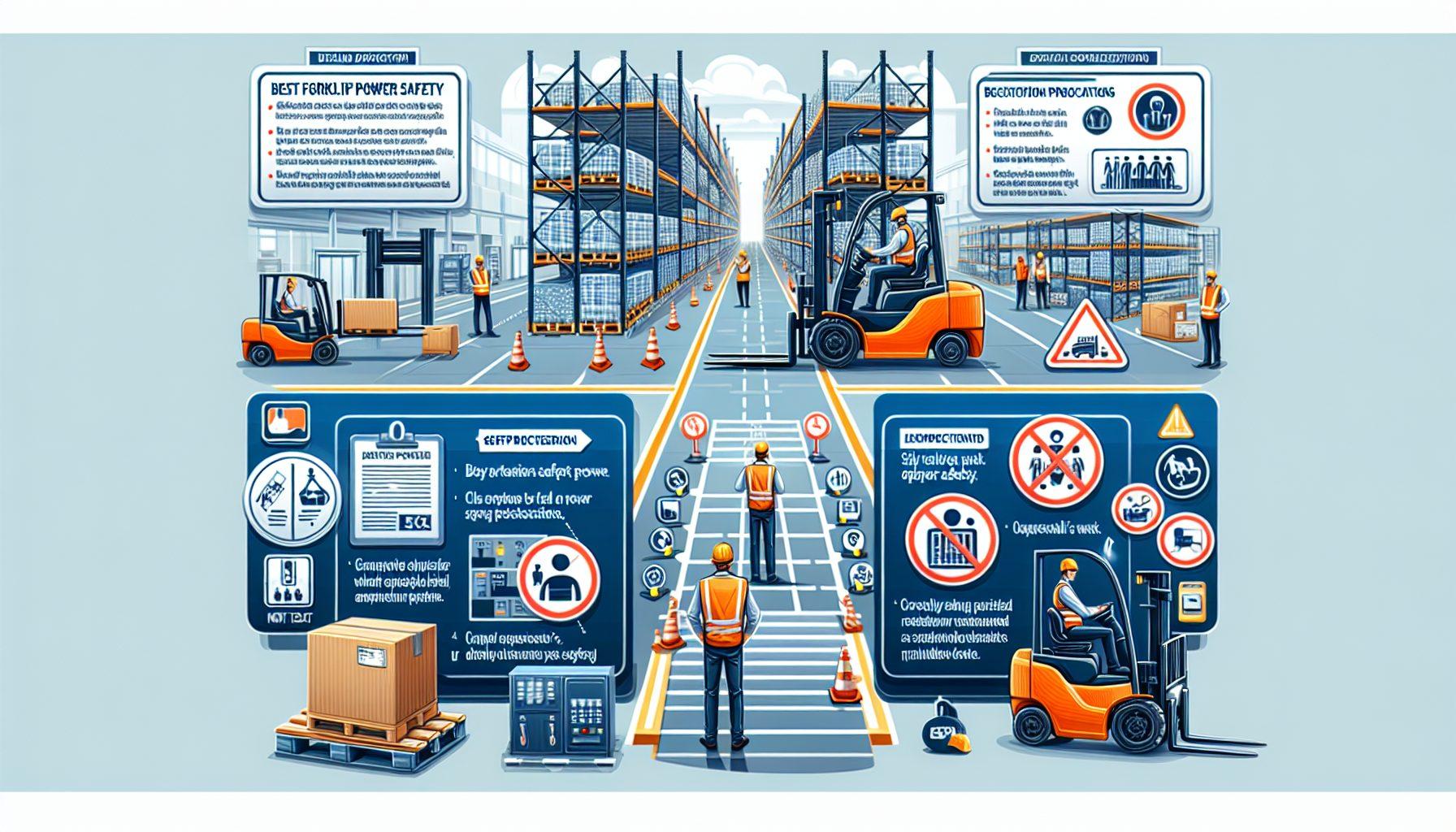Warehouse operations heavily rely on the efficiency and safety of forklifts. These powerful machines play a crucial role in the movement and transportation of goods within the warehouse. However, ensuring the safe and optimal use of forklifts requires implementing best practices for power management.
Why is Forklift Power Management Important?
Proper power management is essential for several reasons. Firstly, it helps to ensure the safety of both the forklift operators and other personnel in the warehouse. A well-maintained forklift with optimal power levels reduces the risk of accidents, such as sudden power loss during operation.
Secondly, effective power management helps to improve overall productivity and efficiency within the warehouse. By implementing best practices, such as scheduling regular battery maintenance and optimizing charging cycles, forklift downtime due to power-related issues can be minimized. This leads to increased operational efficiency and reduces disruptions in the workflow.
HCO Innovations, a leading provider of warehouse optimization solutions, offers comprehensive forklift power management services that enable businesses to implement best practices for safety and efficiency.
Best Practices for Forklift Power Management
Implementing the following best practices can help enhance safety, efficiency, and cost-effectiveness in forklift power management:
- Regular Maintenance: Conducting routine maintenance checks for forklifts is crucial to ensure optimal performance and longevity. This includes inspecting and cleaning batteries and connectors, checking fluid levels, and monitoring any signs of wear or damage.
- Battery Charging: A proper charging routine is vital to maximize the life of the forklift battery. It is recommended to follow manufacturer guidelines for charging times and cycles. Avoiding overcharging and deep discharging can help prevent damage to the battery and extend its lifespan.
- Opportunity Charging: Implementing opportunity charging can significantly reduce downtime. This practice involves recharging forklift batteries during short breaks or idle periods. By utilizing this approach, forklifts can be kept in operation for longer durations, increasing productivity and reducing the need for battery swaps.
- Efficient Battery Handling: Proper handling of forklift batteries during replacement or maintenance is crucial for safety. Training forklift operators on how to handle batteries properly, including wearing appropriate personal protective equipment, can prevent accidents and injuries.
- Battery Monitoring Systems: Utilizing battery monitoring systems can provide real-time data on battery health and performance. These systems can help identify potential issues proactively, allowing for preventive measures to be taken before major problems arise.
By implementing these best practices, businesses can optimize power management for their forklift fleet, improving safety, productivity, and overall efficiency within the warehouse.
Partnering with HCO Innovations for Forklift Power Management
HCO Innovations specializes in providing cutting-edge solutions for warehouse optimization, including forklift power management. With their expertise and experience, they can assist businesses in implementing the best practices mentioned above.
Through their comprehensive forklift power management services, HCO Innovations offers tailored solutions that meet the specific needs of each client. Their team of experts assesses the existing power management processes, identifies areas for improvement, and implements strategies to enhance safety, productivity, and cost-effectiveness.
With HCO Innovations as a trusted partner, businesses can maximize the potential of their forklift fleet, ensuring smooth operations and minimizing downtime caused by power-related issues.
In conclusion, proper forklift power management is crucial for ensuring safety, productivity, and efficiency within warehouse operations. By following best practices such as regular maintenance, efficient battery charging, and implementing battery monitoring systems, businesses can optimize power usage and reduce the risk of downtime. Partnering with experts like HCO Innovations can help organizations implement these best practices effectively and unlock the full potential of their forklift fleet.

